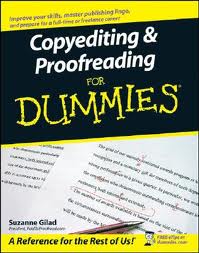 It’s good to poke your head up above the foxhole every once in a while and take a look at what else is going on in the world.
It’s good to poke your head up above the foxhole every once in a while and take a look at what else is going on in the world.
As always, the goings-on run the gamut from the wonderful to the weird.
First up, our own Martin Crosbie gets a nice hat tip in this article on Kindlegate over at Digital Journal.
Are you familiar with the term “back-formation?” According to Mark Nichol, of Daily Writing Tips, “A back-formation is a new word produced by excising an affix, such as producing the verb secrete from the noun secretion.”
Mark says that while many back-formations eventually take their place in the lexicon, there are some newer ones that writers would be wise to avoid, at least in formal writing.
Book-to-movie is the new hotness. Well, maybe not that new. So, what’s coming down the pike? Publisher’s Weekly gives us a list of the 10 most anticipated book adaptations of 2013.
Are words more than characters used to convey meaning? Here’s a piece on the meaning of writing from the National Writing Project.
Last but not least, it looks like the jello is still squishing out from between the fingers of Amazon’s iron grip when it comes to policing reviews. The New York Times sees “swarm” reviews used as a strategic weapon to attack books.


 Indie authors sweat bullets over getting reviews and worrying about bad reviews. It turns out we’ve been going about this all wrong.
Indie authors sweat bullets over getting reviews and worrying about bad reviews. It turns out we’ve been going about this all wrong.